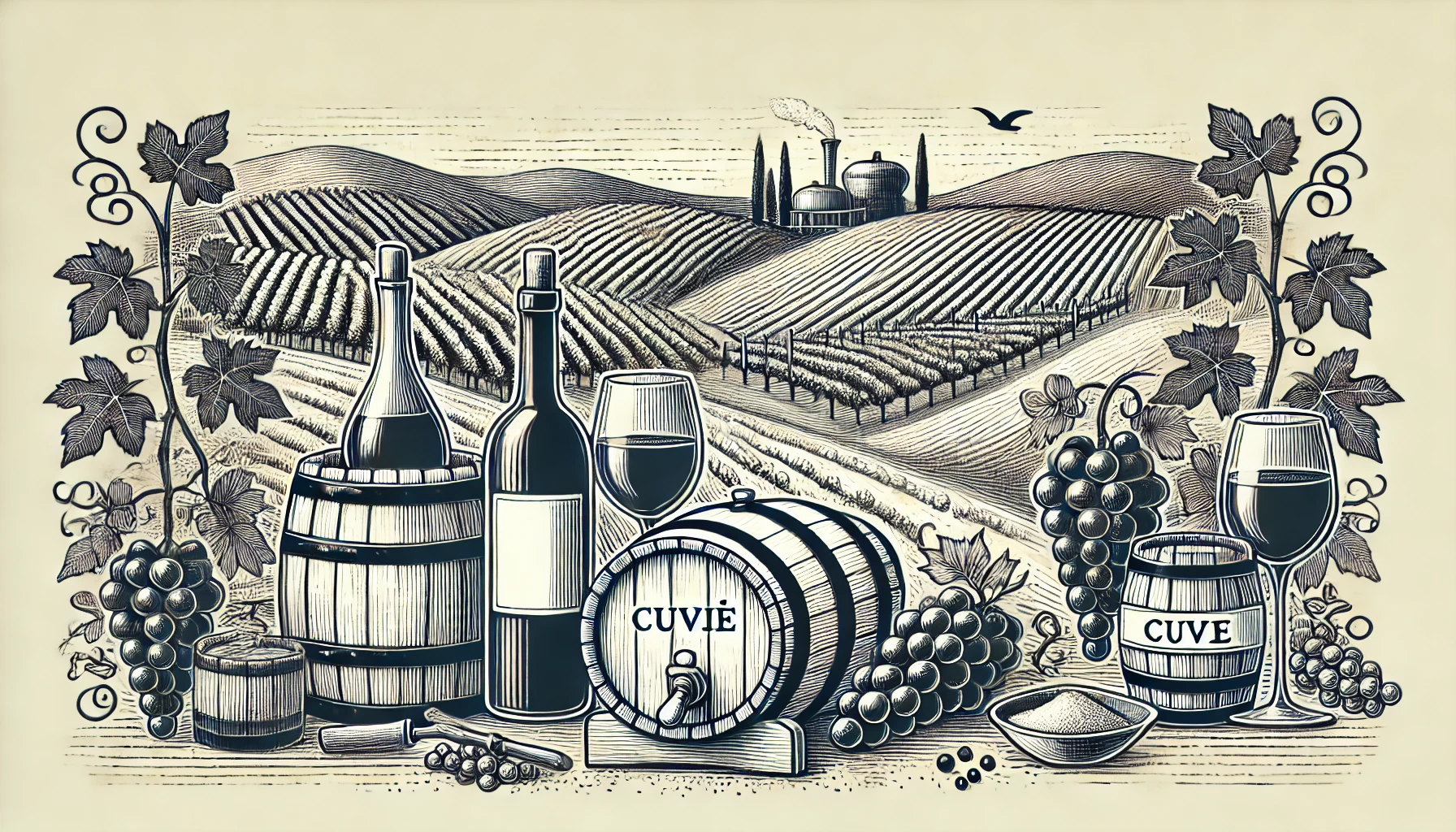
“Cuvée” is a French word used in the wine industry to refer to a specific blend, batch, or selection of wine. The term originates from the French word “cuve,” meaning vat or tank, which refers to the container in which wine is fermented. Over time, the word has come to signify not just the container, but the wine produced from it. While it is commonly used in Champagne and sparkling wine production, it is also found in various wine styles across the world.
In the context of Champagne, “cuvée” often refers to the first and most premium pressing of grapes, where the best juice is extracted for the highest-quality wine. For example, in Champagne, the “tête de cuvée” is considered the best wine made from a particular vintage or house. Famous examples of these include Dom Pérignon and Cristal, which are renowned for their exceptional quality and consistency.
However, the term can also refer to a blend of different grape varieties, vineyards, or even vintages, especially in still wines. Winemakers often create a cuvée by blending different wines to achieve a specific flavor profile, texture, or balance. The intention is to make a wine that is greater than the sum of its parts by harmonizing the characteristics of each component. For instance, a red Bordeaux cuvée typically consists of a blend of Cabernet Sauvignon, Merlot, and other grapes to create a balanced and complex wine.
Meaning in The new World
In the New World, particularly in countries like the United States and Australia, the word “cuvée” can be somewhat ambiguous. It may simply refer to a particular wine made by a producer, often with no specific meaning regarding quality or method. It can range from a top-tier blend to a mass-market offering. This makes the term somewhat confusing for consumers, as it doesn’t always guarantee high quality.
When assessing a cuvée, it’s essential to look at the producer’s reputation and the wine’s overall quality. In summary, while “cuvée” may be used differently depending on the region, it generally denotes a specific blend or selection of wine, often indicating careful craftsmanship, especially when referring to premium wines.